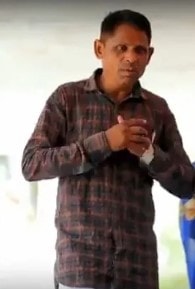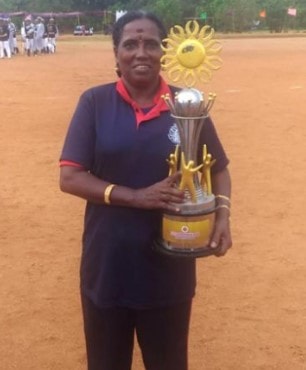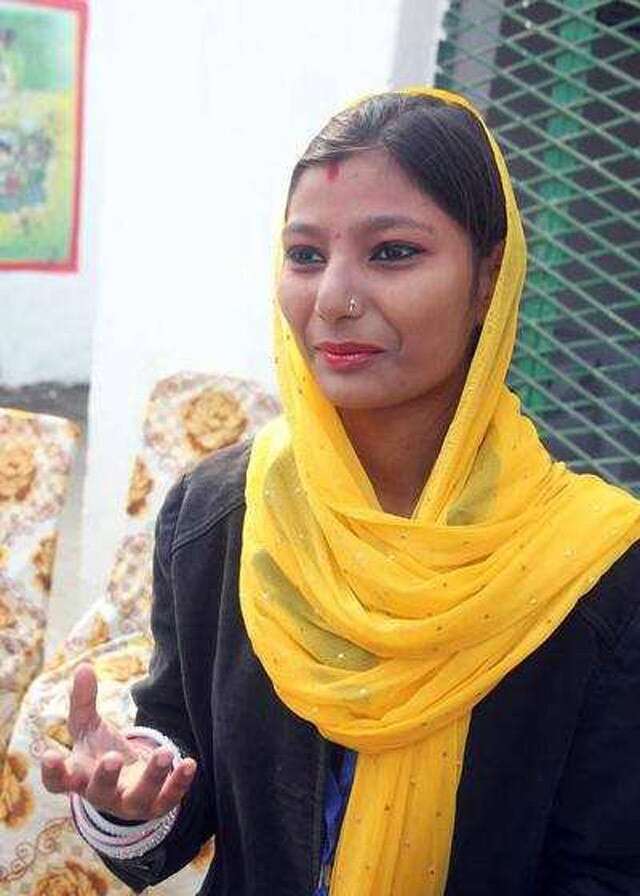No products in the cart.
People who single-handedly built Toilets and set a great example | The Youth special
Farmer built 780 toilets in 35 days to make his village free from open defecation
Almost 70% of the population lives in rural India and the public health conditions regarding clean drinking water, sufficient treatment and disposal of human excreta and sewage have been the main concern. As per the latest report, 732 million people which is 56% of the Indian population still don’t have basic sanitation. Under the central government’s campaign, Swachh Bharat Abhiyan, 52 million household toilets have been constructed between October 2014 and November 2017.
But what seems to be continuing is the practice of the old-age tradition of ‘open defecation’. As part of the Swachh Bharat Abhiyan, the 45-year-old Manilal Rana decided to work with his team. They built 780 toilets in his village in a span of just 35 days. Interestingly, Manilal is the only swachhagrahi (ambassador of cleanliness) from Rajasthan who was honoured by Prime Minister Narendra Modi at the concluding ceremony of #ChaloChamparan initiative held in Bihar on April 10, 2018.

Manilal Rana comes from Savaniya of Rajasthan’s Banswara district. He witnessed a life-changing moment when he came during one of his trips to cities like Ahmedabad and Mumbai, where he learnt that most people have got toilets in their households itself. However, it was a different scenario in Manilal’s village called Savaniya, where people still practised the old tradition of open defecation. He was aware that the need for toilets in every home of his village. He sketched out a plan to execute it.
In a conversation with NDTV, Manilal said, “As soon as a thought was born, I decided to work on it. We had to figure out two things before undertaking any activity – the reason behind lack of toilets and the number of toilets required. For the same, I joined hands with youth and led behavioural change. When we started the campaign, there were some 280 toilets in the village and we had to build over 700 toilets, says Manilal Rana, who already had a toilet at his place.”
Before he could turn his idea into action, he came across some hard challenges such as the uncompromising attitude of his villagers towards safe hygiene practices. When he tried to convince people they would say, “Our forefathers have been defecating in the open, why should we do things any differently? The villagers would also oppose the concept of having a toilet inside the premises of their house stating, ‘We cannot have a kitchen and toilet together.”
Manilal started explaining them through real-life examples. He stressed the fact the problems caused due to open defecation are diarrhoea, housefly breeding, etc. After listening to this, the fellow villagers understood what Manilal was actually telling. It also made it quite easier for Manilal to start the proceedings.
The toilets in the village are identified as izzat ghar (House of dignity). Manilal also feels that the toilets protect the dignity of the women of his village, and as a result, the people need not defecate in the open area anymore. Manilal said, “Slowly and gradually, the whole exercise was turned into a ceremony. Every morning, the Sarpanch and Nigrani Samiti members (supervisors), accompanied by a priest would visit households to mark the laying out of twin-pit toilet construction.”
Forest Officer built 497 Toilets in Kerala’s Tribal Colonies
There is nothing in this world that can stop women from doing many many good things in life. They are bound to achieve at a very young age and also they are destined to get better and brighter when they become old. Would you possibly believe that a woman brought a drastic change to the state at the age of 50? She proved that age is just a number in today’s world.
To achieve phenomenal things in life, a strong vision with intensity, tenacity and will power is just enough to drive one forward. P.G Sudha is not just a name but a countless of emotions that are pinned to it. That sums up the essential woman for you! The fact that P.G Sudha set herself as an epitome of sheer class is something that others are really proud of.

What makes her so special?
Hailing from Ernakulam district of Kerala, P.G Sudha is a potential beat forest officer by trait. She deserves a certificate of excellence for coming up with an initiative of building as many as 497 toilets in the tribal colonies of the Kuttampuzha forest in a bid to get rid of defecation. She chose this activity as her personal interest because she always wanted to make the environment neat and clean.
With grit and determination, the beat forest officer put in a hoard of efforts to bring a slight change. Much to her constant hard work, there came a fruitful news from Kerala Government as the state was declared open defecation free, making the third state to achieve this feat. The proud and belligerent woman won the Chief Minister’s Open Defecation Free campaign award on November 1, 2016.
P.G Sudha has her say on the whole story:
“Life is tough in these tribal colonies, where facilities are minimal as compared to other parts of the area. One has to walk for three hours to reach the tribal settlements,” she added.
“The reason that people here did not have toilets was that they were simply used to defecating in the open and even if someone did want a toilet, constructing one would have been too difficult. The area’s terrain means that the transportation of construction materials is very difficult if not nearly impossible,” the beat forest officer told.
“Though people here can afford a toilet, the colonies had none. That is because they are comfortable with open defecation. Secondly, the construction of toilets is not an easy task, since bringing building materials from outside is a herculean task.”
“The biggest challenge was not the construction but actually transporting the materials. This is why everyone was reluctant to take up the job. These tribal colonies are remote, there are no proper roads to get to them. In fact, to reach some of these settlements one has to walk for 15 to 20 kilometres because there aren’t any other means,” Ms Sudha tells NDTV.
“We had to be very careful. We had to avoid confrontation to ensure that the operation ran smoothly,” she says.
“We would brainstorm and find different ways to transport the construction material to the site. We would be sometimes carting it for kilometres and at other times we would be using rafts to transport the material. Once, the load was so heavy that the raft capsized and the material swept away. But we did not give up,” she concluded.
Meet Komal Hadala- she single-handedly made her village ‘open defecation free’
Meet 21-year-old Komal Hadala, who has single-handedly helped build 250 toilets in two years in her village, Nithora in Uttar Pradesh, which has now been declared open-defecation free. Needless to say, it was not that easy for this newly-married women to accomplish the whole process.
In fact, there is nothing in this world that can stop women from doing many many good things in life. They are bound to achieve at a very young age and also they are destined to get better and brighter when they become old.

In an exclusive interview with The Better India, Komal said, “The task was inherently difficult. Sometimes the people would scold us. Sometimes they would scoff and scorn at us for being ‘jobless’. Often they would misbehave and taunt us as well.”
The actual goal to make the village open defecation-free started when Komal, who was born and raised in the national capital got married in 2017. Having grown up in the city, she never saw a home without a toilet, but when she got married and moved to Nithora, she was asked to accompany other women to relieve herself in the outdoors.
Komal added. “We would walk in groups for kilometres to find a secluded place. Men would jeer at us, and sometimes, farmers would shoo us away from near their lands. It was extremely embarrassing”, reports The Better India. Soon, Komal, who was repulsed by the idea, took matters into her own hands and spoke up against this practice.
Before she could actually reach out to the people of the village, Komal had approached her in-laws and husband who offered complete support. Later, she was joined by a few village women who backed her, when she went to the village head to ask for new toilets to be constructed. With some support from a few farmers, and the government, Komal got the funds to build toilets.
“We were used to going to the fields since our birth. How would that change in a day? It took time, but the scenario eventually changed,” Komal told Indian Women Blog.








